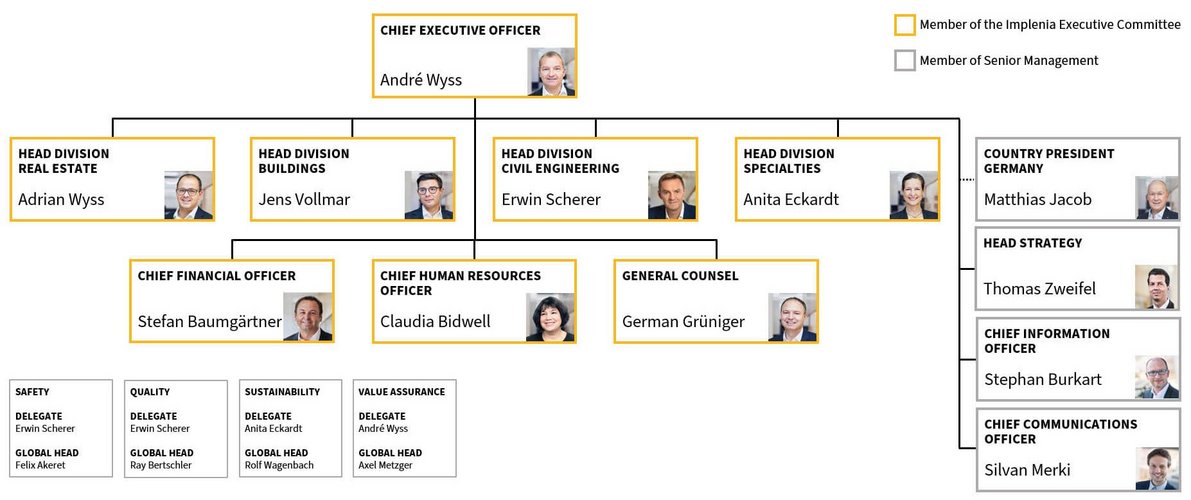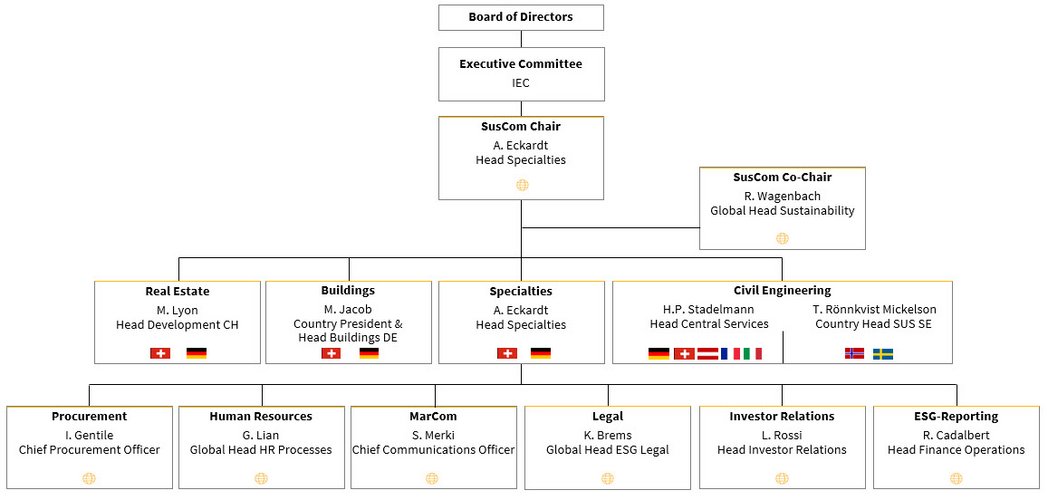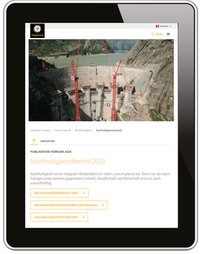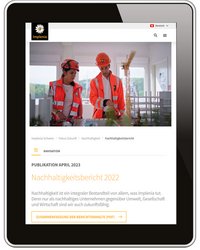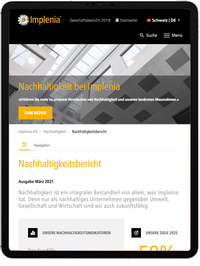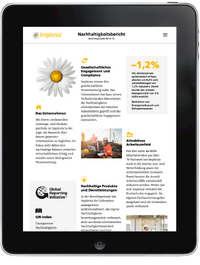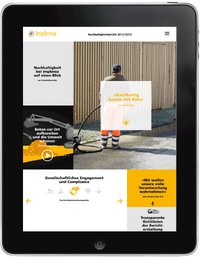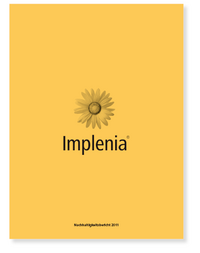
Sustainability Governance
Sustainability at Implenia
As one of Implenia’s five corporate values, sustainability has been firmly anchored in our corporate culture since 2009. We always try to think about sustainability holistically and take a lead in three aspects – environmental, social and financial.
Content
Implenia at a glance
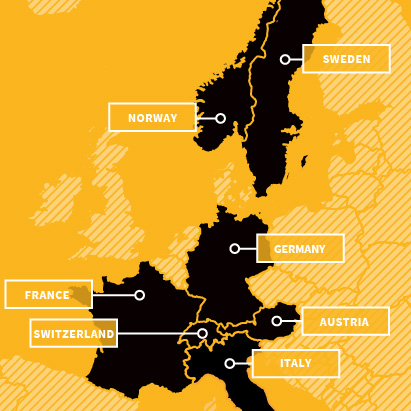
- GRI 2-1
- GRI 2-6
As leading construction and real estate service provider, Implenia develops, builds and manages homes, workplaces and infrastructure for future generations in Switzerland and Germany. It also offers tunnelling and infrastructure services in other markets. Formed in 2006, the company can look back on around 150 years of construction tradition. Implenia brings together the know-how of its highly skilled development, planning and execution units under the umbrella of an integrated multinational construction and real estate service provider. With its broad offering and the expertise of its specialists, the Group realises large, complex projects and provides client-centric support across the entire life cycle of a building or structure. It focuses on client needs and on striking a sustainable balance between commercial success and social and environmental responsibility. Implenia, with its headquarters in Opfikon near Zurich, is listed on the SIX Swiss Exchange (IMPN, CH0023868554). All financial figures as well as additional information on the business model of Implenia can be found in the Annual Report.
Business Model
- GRI 2-2
- GRI 2-6
In order to operate sustainably and successfully in various market segments, Implenia has organised itself into the following four Divisions, each of which uses its collective expertise to operate with entrepreneurial independence: Real Estate, Buildings, Civil Engineering and Specialties. The global functions (Finance, HR, Legal, Marketing/Communications, Strategy and IT) support the Divisions and provide Group-wide leadership in their areas of expertise. In order to maintain deep local roots and a close connection to customers, Implenia also has regional organisations in its markets that provide services locally.
Implenia generates value for its clients at all stages of the value creation process – based on its strategic priorities and within a clear organisational structure. With integrated services, Implenia executes complex projects, and accompanies customers through the entire lifecycle of their buildings.
Division Real Estate offers comprehensive, sustainable real estate solutions. Implenia is already a leading real estate developer in Switzerland and is growing its business in Germany. The Division’s services also include active asset and portfolio management, designing new types of real estate investment vehicle, and developing industrialised, standardised and scalable real estate products.
Division Buildings focuses on integrated consultancy, planning, conception, construction and management of complex new buildings and challenging modernisation projects. The focus here is on customer-oriented solutions over the property’s entire life cycle. The range of services covers the whole value chain, from initial analysis and planning steps – often even before contracts have been signed – to handover and management of the finished building. With Wincasa as an independent business unit within the Buildings Division, Implenia is optimising its offering during the use phase. Implenia is a leading general and total contractor in Switzerland and Germany.
Division Civil Engineering offers services in tunnelling, special foundations and civil engineering. Services range from the planning of specific special solutions to the entire execution of large, complex infrastructure projects. Digital tools such as BIM (Building Information Modeling) and the latest applications of the Lean Construction method are becoming increasingly important. In all of these areas, Implenia occupies a leading position in Switzerland and Germany. In other European markets, Implenia limits its offering to tunnelling and related infrastructure projects.
Division Specialties develops solutions for niches in the construction industry such as timber construction, geotechnical engineering, prestressing technology, facade technology, building technology planning, construction logistics, building physics, acoustics, sustainability & energy – for an efficient and sustainable construction industry. By continuously adding new services to its portfolio, the Division is actively helping to shape major changes in the construction industry. Innovation and the added value it brings to customers is a central theme. This innovation can come from screening potential acquisitions, from external partnerships or from Implenia’s internal innovation management system.
- GRI 2-23
Implenia creates living spaces, working environments and infrastructure for future generations. To achieve its vision and live its mission, all employees are guided in their daily work by the five values of excellence, collaboration, agility, integrity and sustainability, which shape the corporate culture and are lived out in the company's day-to-day activities.
GOVERNANCE
- GRI 2-9
- GRI 2-10
- GRI 2-11
- GRI 2-15
Implenia’s highest operational body is the Implenia Executive Committee (IEC), which is made up of the CEO, the CFO, the CHRO, the General Counsel, and the four Division Heads. The Group’s most senior supervisory body is the Board of Directors. It is responsible for the overall oversight of the Group; it appoints and monitors the management and defines strategy. The seven members of the Board are independent and do not perform any operational roles within Implenia.
Sustainability organisation
- GRI 2-9
- GRI 2-12
- GRI 2-13
- GRI 2-14
- GRI 2-17
- GRI 2-23
- GRI 2-24
Implenia has a dedicated sustainability organisation that ensures sustainable development is embedded within the company: The Global Sustainability team helps the Divisions and global functions achieve their sustainability goals. In collaboration with local sustainability specialists from the Divisions and countries, the team is in charge of sustainability management and reporting; it supports sustainability measures within construction projects and promotes initiatives at Group level. The team provides both project-specific services (Sustainable Construction and Environmental Protection) and internal services (Sustainable Implenia, climate-related topics). The Global Head Sustainability reports to the Head Division Specialties, which represents the topic of sustainability in the Implenia Executive Committee and is the Chair of the Sustainability Committee (SusCom).
The SusCom supports and oversees the Global Sustainability Team and is made up of representatives from every Division and global function. The Global Head Sustainability functions as co-chair of SusCom. SusCom meets four times a year to discuss the latest issues, define sustainability goals, anticipate new regulations and trends, take strategic decisions and launch Group-wide initiatives. SusCom, together with the IEC, also reviews the Group’s sustainability reporting, which is ultimately approved by the Board of Directors.
The Group’s highest operational body, the Implenia Executive Committee (IEC), deals regularly with sustainability issues, approves the necessary resources and represents these issues to external stakeholders.The Head Division Specialties and Chair of the SusCom sits on the IEC. There is particular focus on climate-related issues, such as defining the decarbonisation strategy.
The CEO reports to the Board of Directors on sustainability issues at every regular Board meeting (about eight times a year). The Chair of SusCom also gives the Board of Directors a detailed briefing three times a year. This includes information about the status of the sustainability goals and how well they are being achieved, e.g. progress on CO2 reduction, the strategy to decarbonise by 2050, and updates on ESG regulations. The Audit Committee, which consists of three members of the Board of Directors and meets at least three times a year, monitors both financial and ESG reporting.
Remuneration of IEC members is affected by Implenia’s success in achieving its sustainability goals: 10 percent of “Short-Term Incentive” payments depend on the extent to which the member concerned achieves his or her individual sustainability goals. The Short Term Incentive makes up half of members’ basic salaries. In coming years, the link to climate-related issues will be strengthened.
The Board of Directors approves the sustainability strategy and corresponding long-term Group objectives. It takes into account the risks involved, particularly the climate-related challenges (read more). For example, Sustainability Goal 2, “Sustainable Supply Chain”, directly addresses the risk of a non-sustainable supply chain by stating that at least 75% of any tender amount goes to sustainable suppliers and subcontractors.
Two thirds of Board members have substantial experience in sustainability areas. One member holds a professorship in civil and environmental engineering and has profound knowledge of environmental matters.
Sustainability management
- GRI 3-3
Sustainable development must be implemented across all Divisions and put into practice by everyone throughout the company. It is a Group-wide responsibility that touches on all activities and requires the commitment of every employee at all levels. This is why Implenia practises an integrated form of sustainability management, with a global sustainability team and with specialists in the Divisions and global functions.
The Global Sustainability department’s job is to address significant issues in consultation with stakeholders, set Group-wide standards and propose measures and targets for the Divisions and global functions. All measures are implemented in collaboration with the relevant Divisions and global functions.
Responsibility for implementation usually rests with operational line management in the Divisions and global functions. Each Division thus has people responsible for safety, quality and sustainability.
At the beginning of each year, the Divisions and global functions define their annual goals, which are based on the company-wide Sustainability Goals. Over the course of the year, divisional management talks to the individuals responsible for the targets at a series of meetings. At the first meeting, the annual goals are discussed, amended where necessary and signed off. At subsequent meetings, the progress of implementation is discussed and next steps are defined. This process allows Implenia to check regularly whether the measures are on course, and to coordinate between different business units. At the end of each year, the Sustainability Committee determines the degree to which sustainability goals have been achieved (link to the goal dashboard). This status is then ratified by the IEC and the Board of Directors when they sign off the Sustainability Report.
Recognition from rating agencies
In the latest rating (2024) by EcoVadis, the world’s largest provider of sustainability ratings, Implenia achieved 75 out of a possible 100 points (Scorecard). The company thus retains the gold status awarded last year and stays in the top five percent of the over 100,000 businesses rated by EcoVadis. In 2024, Implenia received a ‘B’ rating for the first time from the global non-profit organisation CDP in the area of climate change.
In 2024, Implenia was also ranked as an industry leader in other ratings that focus mainly on sustainable investments, including Morningstar Sustainalytics and MSCI. For more details see the “Financial and Operational Excellence” chapter.

Sustainability strategy
Sustainability has been anchored in Implenia’s values since 2009 as an integral part of the company’s strategy. The following timeline shows the most important milestones achieved over the years.
Our milestones
8. Sustainability Report
(Reporting Year 2024)
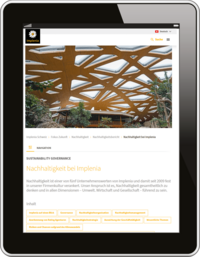
2024

2021


2020


2019


How we interact with stakeholders
- GRI 2-6
- GRI 2-12
- GRI 2-29
Our dealings with our most important stakeholders are briefly described below.
Employees
All of Implenia’s managers are required to foster active dialogue with their staff. The target-setting meeting and performance reviews, which take place every year, are major vehicles for this dialogue. The company uses various internal communications tools, including the Intranet, the employee magazine “Impact”, staff events (in-person and virtual) and newsletters at all level of the organisation.
Implenia also communicates via a variety of internal and external social media platforms designed to increase communication with and between employees. As well as the Intranet and Viva Engage, these include external platforms such as LinkedIn, Facebook, and Instagram.
Customers
Its clients are at the heart of everything Implenia does. As well as numerous contacts at the project level, the company also seeks general, non-project-specific communication with major customers. These regular discussions are important for mutual understanding and provide Implenia with valuable external views.
Alongside this direct communication, Implenia also carries out systematic customer satisfaction surveys in order to identify potential improvements. By getting involved in the early planning stages, the company can identify opportunities for more sustainable solutions and give comprehensive advice on alternatives and options.
Shareholders
Implenia follows an open, transparent and timely information policy in the interests of its shareholders and investors. With its ongoing reporting, the company ensures equal treatment of all stakeholders with regard to timing and content.
Comprehensive information is available online to all investors, journalists and other interested parties under the “Media & Investors” link on the company website. Sustainability-focused investors can also find more information in the “Sustainable Investment” section of the site.
Business partners
Implenia wants its business partners to share the company’s core values. Subcontractors, suppliers and manufacturers have to sign up to the Code of Conduct for External Business Partners. Implenia has a supplier management system, which makes business relationships more transparent and enables communication with suppliers and subcontractors on an equal footing. Regular audits are conducted with the most important suppliers, providing an opportunity to discuss possible improvements.
Public authorities
Implenia values open and professional relations with governmental institutions. The company works hard to comply with all the laws that apply to its heavily regulated field of activity. In the event of alleged or actual infringements, the company cooperates fully with the authorities, helps with investigations and communicates transparently.
It also maintains close contact with public sector bodies when engaged in urban development and infrastructure projects. Implenia runs such significant undertakings in close cooperation with the relevant authorities and prefers to hold architectural design competitions, which help ensure the highest possible standards in terms of sustainability, functionality and aesthetics.
Social partners
As one of the largest employers in the Swiss construction sector, Implenia has a special responsibility to its employees. Consequently, our management maintains a constant, active dialogue with our social partners. Regular meetings are held to share information and discuss each other’s needs.
Associations
Implenia’s representatives work in various organisations and industry associations including, in Switzerland, the Baumeisterverband and its sub-units and the Network for Sustainable Construction Switzerland (NNBS), and in Germany the Hauptverband der deutschen Bauindustrie. Environmental organisations are also important stakeholders in the company’s activities. Open dialogue is fostered by active participation in business and trade associations as well as regional chambers of commerce. This underlines the commitment Implenia has made to actively drive the change towards a sustainable construction and real estate industry together with customers and partners.
Local population
At major construction projects, Implenia invites local authorities and local people to get involved during planning and implementation. This involves activities ranging from information events and site visits, to targeted dialogue with specific stakeholders.
Media
Implenia runs an active and open communications policy. Corporate Communications provides the media with timely and comprehensive information about important events. Journalists are regularly invited to information events designed to keep them up-to-date (in person or virtually) with the company’s activities and business performance. In this way Implenia provides transparency to its stakeholders and the broader public.
Society
Media work is only one part of the Group’s information sharing efforts. Another important pillar of communication is direct contact with people to give them an insight into the world of Implenia. For example, the company invites school children to visit construction yards and projects in Switzerland and Germany as part of its annual Futures Day. Implenia Norway also presents its projects to the public: it invited the entire population of Oslo to come and take a look at its major metro construction site there, for example. Working with universities and other educational institutions, Implenia gives students from different disciplines an opportunity to gain insights into various business areas and visit selected projects.
Material Topics
- GRI 2-12
- GRI 3-1
- GRI 3-2
The Implenia sustainability strategy is based on five thematic priorities. The company first defined these in 2010 and has followed them consistently ever since. These priorities cover the economic, ecological and social aspects of sustainable development and shape the whole Group’s commitment to sustainability. They also form the backbone of this Sustainability Report.

In 2015 Implenia, working with internal and external stakeholders, conducted an initial materiality analysis based on the GRI Standards. The selection is subjected to internal review every two years and supplemented where necessary.
In 2023 Implenia produced a completely fresh analysis based on the “double materiality” approach. In addition to the previously identified topics, account was taken of aspects that form part of GRI and the European Sustainability Reporting Standards (ESRS). In 2024, the double materiality analysis was reviewed and refined by the global sustainability team and presented to SusCom. The material topics from the previous year have been confirmed. The clarification of specific impacts, risks and opportunities relating to ESRS thematic standards will be incorporated into the preparation of the 2025 report, which is produced in line with the CSRD. The main themes will also form the basis for the new sustainability goals from 2026.
The double materiality approach aims firstly to assess a company’s impact on the environment, society and the economy (inside-out perspective), and secondly to evaluate the financial impact i.e. the opportunities and risks of sustainability issues for the company’s business (outside-in perspective). An internal survey was conducted of members of the Board of Directors, the IEC, senior management and sustainability specialists, who were asked to identify the major issues that have a financial impact on the business. Meanwhile, Implenia’s impact on the environment, society and economy was assessed in an on online survey of external stakeholders, including key customers, suppliers, NGOs, investors, banks, universities, trade associations, unions, competitors, the media and the authorities.
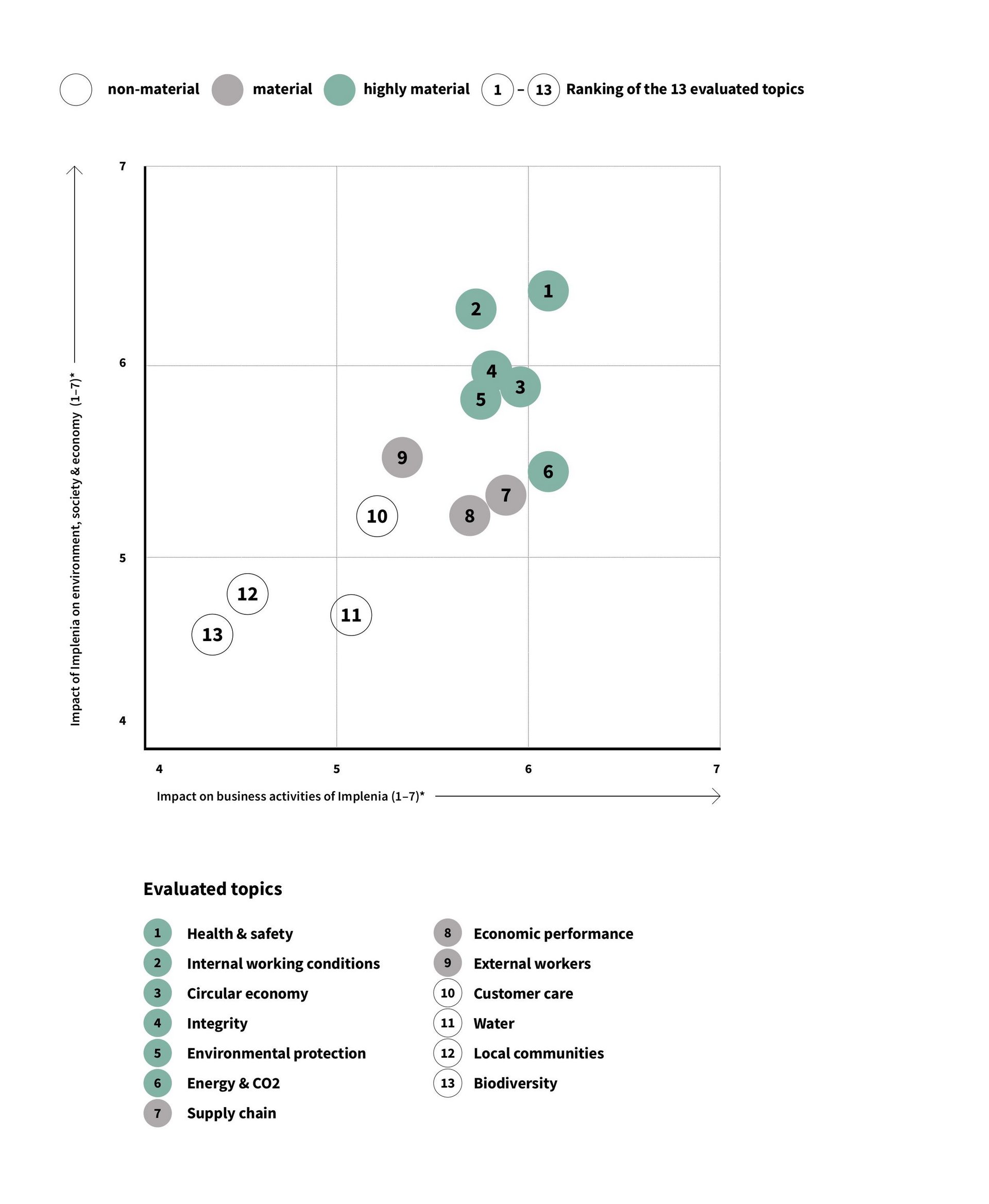
This extensive analysis helped Implenia identify the following key topics as defined by GRI standards. Links are provided to chapters that contain objectives and measures relating to material topics.
- Health & safety (GRI: Occupational Health and Safety)
- Internal working conditions (GRI: Employment, Diversity and Equal Opportunity, Training and Education)
- Circular economy (GRI: Materials, Waste)
- Integrity (GRI: Anti-corruption, Anti-competitive Behaviour, Non-discrimination)
- Environmental protection (GRI: Waste)
- Energy and CO2 (GRI: Energy, Emissions)
- Supply chain (GRI: Supplier Environmental Assessment, Supplier Social Assessment)
- Economic performance (GRI: Economic Performance)
- External workers (GRI: Employment)
Risks and opportunities created by climate change
- GRI 201-2
Risk management at Implenia
As a construction and real estate services company with a broad portfolio, Implenia is affected by climate change in a variety of ways. Active management of opportunities and risks is the central pillar of successful corporate management. So Implenia uses a comprehensive Enterprise Risk Management (ERM) system based on integrated processes and clearly defined responsibilities.
The ERM also helps Implenia assess opportunities and risks related to sustainability and climate change. These are identified, evaluated, controlled, monitored and reported on an annual cycle using standardised processes. Measures are then formulated accordingly. To this end, Implenia has defined a five-level impact scale for all risks to assess the possible impact and determine the probability of a risk occurring. These impact scales are also used in Implenia’s dual materiality analysis so that risks are linked into the sustainability strategy.
In this way the ERM creates a basis for decision-making, helping management to achieve strategic and operational goals. Twice a year, management identifies the most relevant risks – including climate-related risks. Within the Board of Directors, the Audit Committee handles all risk management matters.
Process to identify climate related risks
Implenia is continuously expanding its risk process, and in doing so is guided by the recommendations of the international Task Force on Climate-related Financial Disclosures (TCFD). In line with TCFD recommendations, the company considers both physical risks, such as the increasing frequency of extreme weather events; and transitional risks, such as regulatory changes and shifts in market demand. Qualitative and quantitative methods are used to assess the significance of these risks.
Implenia uses the ‘Net Zero Emissions by 2050 Scenario’ (IEA NZE 2050) for its current climate-related risk analysis. This scenario sets out a roadmap for reducing global energy-related CO₂ emissions to net zero by 2050 and aims to limit the temperature rise to 1.5 degrees Celsius above pre-industrial levels as set out in the Paris Agreement. In 2025, the company will include further climate scenarios in order to broaden its awareness and increase its ability to remain financially sustainable under various conditions.
Implenia evaluates climate-related risks by analysing their potential financial effects on revenues, expenses, assets and liabilities. Different climate scenarios are considered, enabling the company to assess the potential impact of climate risks on its operations, financial performance and strategic objectives.
Within the risk assessment process, Implenia takes particular account of factors specific to the company. These include general trends in construction and real estate markets, upcoming legislative changes and emerging trends in relevant markets. The company also takes note of regional differences and varying time horizons. Risks are assessed over short-term (up to 1 year), medium-term (2-5 years) and long-term (over 5 years) periods, which correspond to the time horizons that Implenia uses for financial planning.
During the assessment process, the potential financial impact, likelihood and possible mitigation measures were identified for each high-priority climate-related risk. Thanks to this detailed analysis, effective strategies can be developed to address the risks and take advantage of the opportunities offered by the transition to a low-carbon economy.
Overview of identified climate related risks
The following tables show the analysis carried using the IEA’s NZE 2050 Scenario in accordance with the Task Force on Climate-related Financial Disclosures (TCFD).
Transition risks
Policy & legal
| Climate-related risks | Potential financial impact | Likelihood | Mitigation measures |
|---|---|---|---|
| Failure to meet ESG criteria |
| Probable |
|
| Non-compliance with environmental standards in the construction sector |
| Possible |
|
| Increased cost of carbon |
| Possible |
|
Market
| Climate-related risks | Potential financial impact | Likelihood | Mitigation measures |
|---|---|---|---|
| Changing customer behaviour |
| Possible |
|
| Availability and increased cost of raw materials |
| Possible |
|
| Non-sustainable supply chains |
| Probable |
|
Technology
| Climate-related risks | Potential financial impact | Likelihood | Mitigation measures |
|---|---|---|---|
| Transition to lower-emission technologies and products |
| Possible |
|
| More complex construction methods |
| Possible |
|
Reputation
| Climate-related risks | Potential financial impact | Likelihood | Mitigation measures |
|---|---|---|---|
| Negative stakeholder feedback |
| Possible |
|
| Processes that aren’t focussed enough on sustainability |
| Possible |
|
Physical Risks
Acute
| Climate-related risks | Potential financial impact | Likelihood | Mitigation measures |
|---|---|---|---|
| Extreme weather events |
| Probable |
|
Chronic
| Climate-related risks | Potential financial impact | Likelihood | Mitigation measures |
|---|---|---|---|
| Persistently higher temperatures and rising sea levels |
| Probable |
|
The diversity of the markets served by Implenia and of the services themselves influences the nature of the risks and their severity: different regions and activities may face different environmental challenges and regulatory frameworks. The table shows the risk analysis associated with climate change at Group level.
As part of the TCFD-oriented approach, Implenia defines targeted mitigation measures aimed at reducing both the likelihood of a risk occurring and its potential financial impact. These measures are integrated into strategic planning to ensure that risks are actively addressed and aligned with Implenia’s long-term sustainability goals. The probabilities shown in the table above are based on initial conditions before mitigation measures are considered.
Implenia takes into account differences in the nature of the transitional and physical risks, as well as the geographical diversity of its markets. Physical risks (e.g. extreme weather events) occur regardless of mitigation measures. In these cases, mitigation measures aim to minimise the potential financial and operational impact.
Outlook
Implenia also aims to identify opportunities arising from the transition to a low-carbon economy and to assess their financial impact. Such opportunities include investing in renewable energy projects, improving the energy efficiency of operations, and developing sustainable construction practices. By integrating these opportunities into our enterprise risk management process, we ensure that they – just as much as the risks – are systematically incorporated into our considerations.
Over the next two years, Implenia will also integrate the financial impact of climate-related risks into its financial planning systems. This integrated approach will further align our financial strategy with our climate risk management and support long-term financial sustainability.
Impact of risks and opportunities on other material topics
Within Enterprise Risk Management, Implenia takes account not only of climate risks but also other sustainability-related risks suggested by the sustainability priorities and material topics. The company set its sustainability targets for 2025 on this basis.
- The execution of real estate and infrastructure projects puts a burden on the environment – mainly in the form of emissions. The way things are planned and built has an effect on emissions not only during construction itself, but also indirectly during the operational phase – through the choice of energy sources for heating and cooling, for example.
A large proportion of emissions are generated in the production and delivery of construction products. It is vital to raise awareness among suppliers, subcontractors and the company’s own employees, and where possible, to work with partners that operate sustainably.
Relevant material topics: circular economy, energy and CO2, supply chain
- The construction industry generates considerable quantities of building waste, and as a major consumer of fossil fuels it is one of the biggest CO2 emitters.
- Awareness of the environmental impact of construction sites and of possible environmental incidents on them is as important as the need to anchor environmental measures in all core processes.
A circular economy – e.g. the reuse of excavated material from tunnel construction or the recycling of residual concrete – helps to protect the environment.
Relevant material topics: circular economy, environmental protection, energy & CO2
- There is a high risk of accidents in the construction industry. Ensuring a safe working environment is Implenia’s highest priority.
- The construction industry faces a shortage of skilled personnel. Training and developing its own specialist workers is crucial to sustainable success.
Long-term retention and continuing development of its employees is central to the company’s performance, culture and stability.
Relevant material topics: health and safety, internal working conditions
- To prevent infringements of the Code of Conduct, Implenia continuously works on employee awareness measures and on efforts to embed the principles of the Code in business processes.
The impact of Implenia’s business activities on the environment, society and the economy is far-reaching. It is important for Implenia to be actively involved in the long-term development of its immediate and more distant environment.
Relevant material topics: integrity, supply chains, external workers
As an international group it is important that Implenia shares experiences and know-how within and between all business units.
Relevant material topics: economic performance
Sustainable Development Goals
- GRI 2-23
Implenia is guided in its work by the UN’s Sustainable Development Goals (SDGs). The Group hopes that its sustainability efforts will help the global community achieve these goals, particularly the following ones:
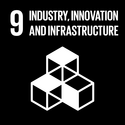
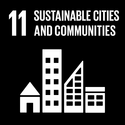

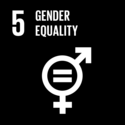
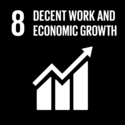




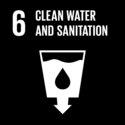

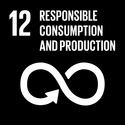
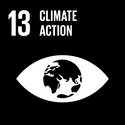
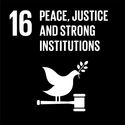

2025 goals
- GRI 3-2
- GRI 3-3
Implenia has set itself long-term sustainability goals based on a comprehensive materiality analysis conducted with internal and external stakeholders, and taking into account the UN’s Sustainable Development Goals (SDGs). The company should achieve its current goals by the end of 2025. Implenia uses the goal dashboard to report continuously and transparently on the work being done on the goals and the degree to which they are being achieved. The dashboard also shows the sub-goals, derived from the main ones, for each Division and global function.
Implenia is currently working on new targets for beyond 2025. These will be included in the 2025 Sustainability Report, which will be published in February 2026. At this point the company will also clarify its short, medium and long-term decarbonisation path.
Standards and regulations
The scope of ESG regulations in Implenia’s markets has steadily expanded over the years, placing ever greater demands on the company. These national and international laws, guidelines and regulations are continuously analysed by working groups led by the core ESG reporting team. The team, founded in 2023 and consisting of representatives of Finance, Legal and Sustainability, also takes input from the relevant departments and the Implenia Executive Committee. Any measures required are implemented by the company in stages, while legally required information is disclosed transparently. This report was prepared in accordance with Swiss Code of Obligations (Art. 964 et seq.).
Implenia bases its sustainability activities on the following regulations in particular:
- EU Corporate Sustainability Reporting Directive (CSRD)
- EU Taxonomy for Sustainable Activities
- EU Corporate Sustainability Due Diligence Directive (CSDDD)
- Swiss Ordinance on Due Diligence and Transparency in Relation to Minerals and Metals from Conflict-Affected Areas and Child Labour (VSoTr)
- Transparency about non-financial matters (Swiss Code of Obligations Art. 964b OR)
- German Supply Chain Due Diligence Act (LKSG)
- Norwegian Transparency Act

